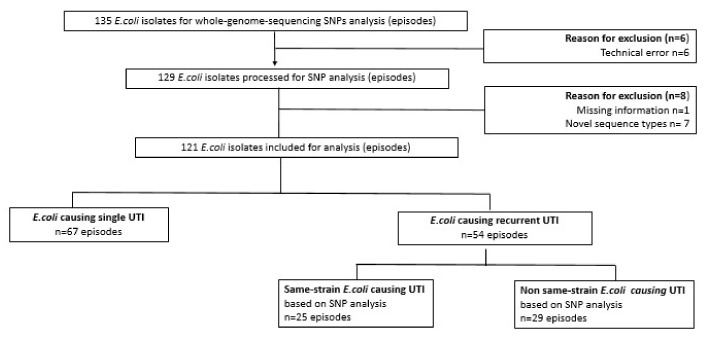Figure 1.
Overview of Escherichia coli (E. coli) isolates analyzed by whole-genome sequencing. E. coli causing single urinary tract infection (UTI) was defined as a single UTI episode with ≥104 CFU/mL growth of E. coli in the urine culture; E. coli causing recurrent UTI (rUTI) was defined as unique nursing home residents with ≥2 UTI episodes with ≥104 CFU/mL growth of E. coli in the urine culture at ≥30 days’ interval between subsequent episodes; same-strain E. coli causing UTI was defined as the same E. coli strain observed over different time points based on whole-genome sequencing and single-nucleotide-polymorphism (SNP) analysis; non-same-strain E. coli was defined by a subgroup of nursing home residents with E. coli causing rUTI but not same-strain based on SNP analysis.

